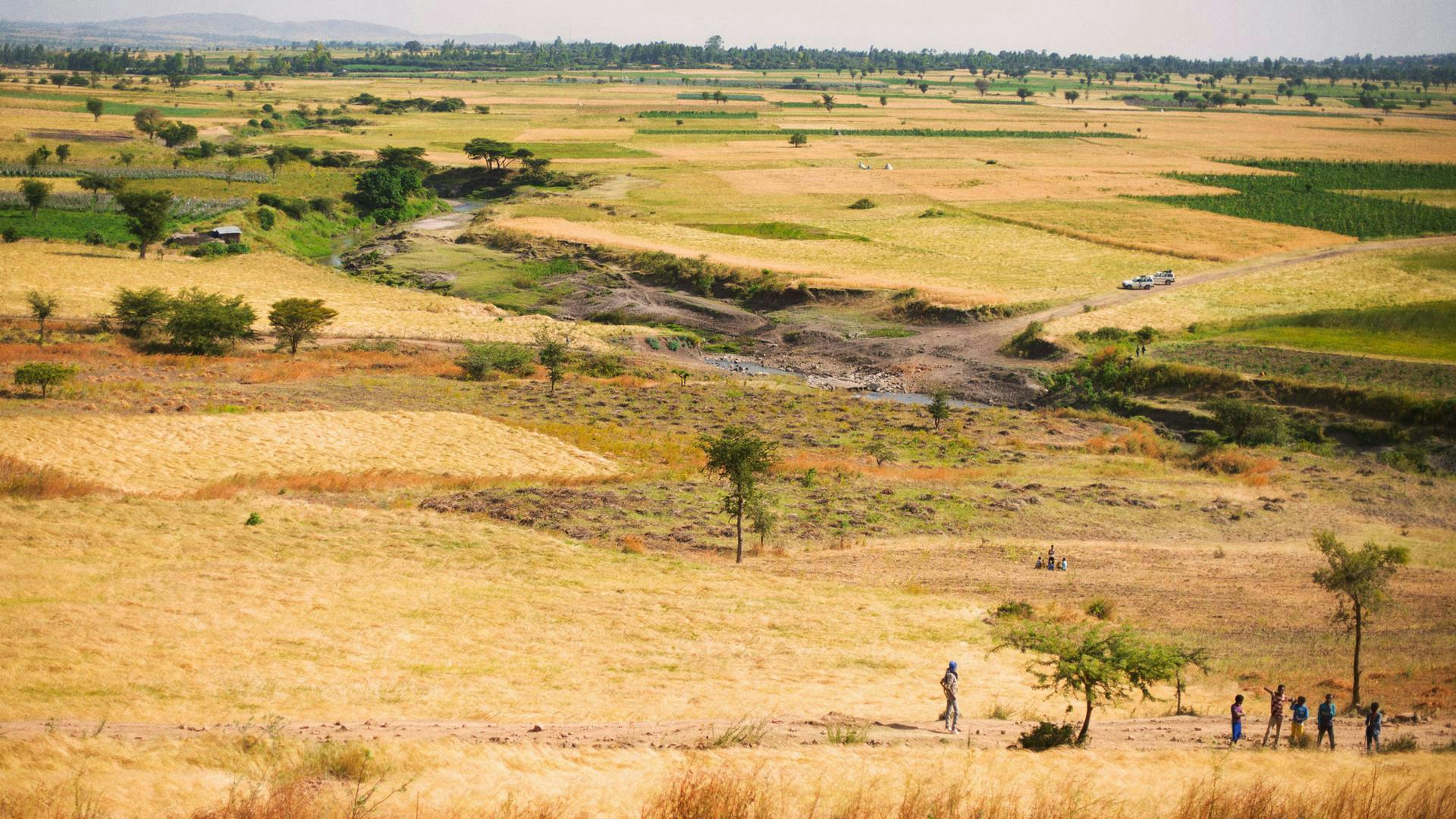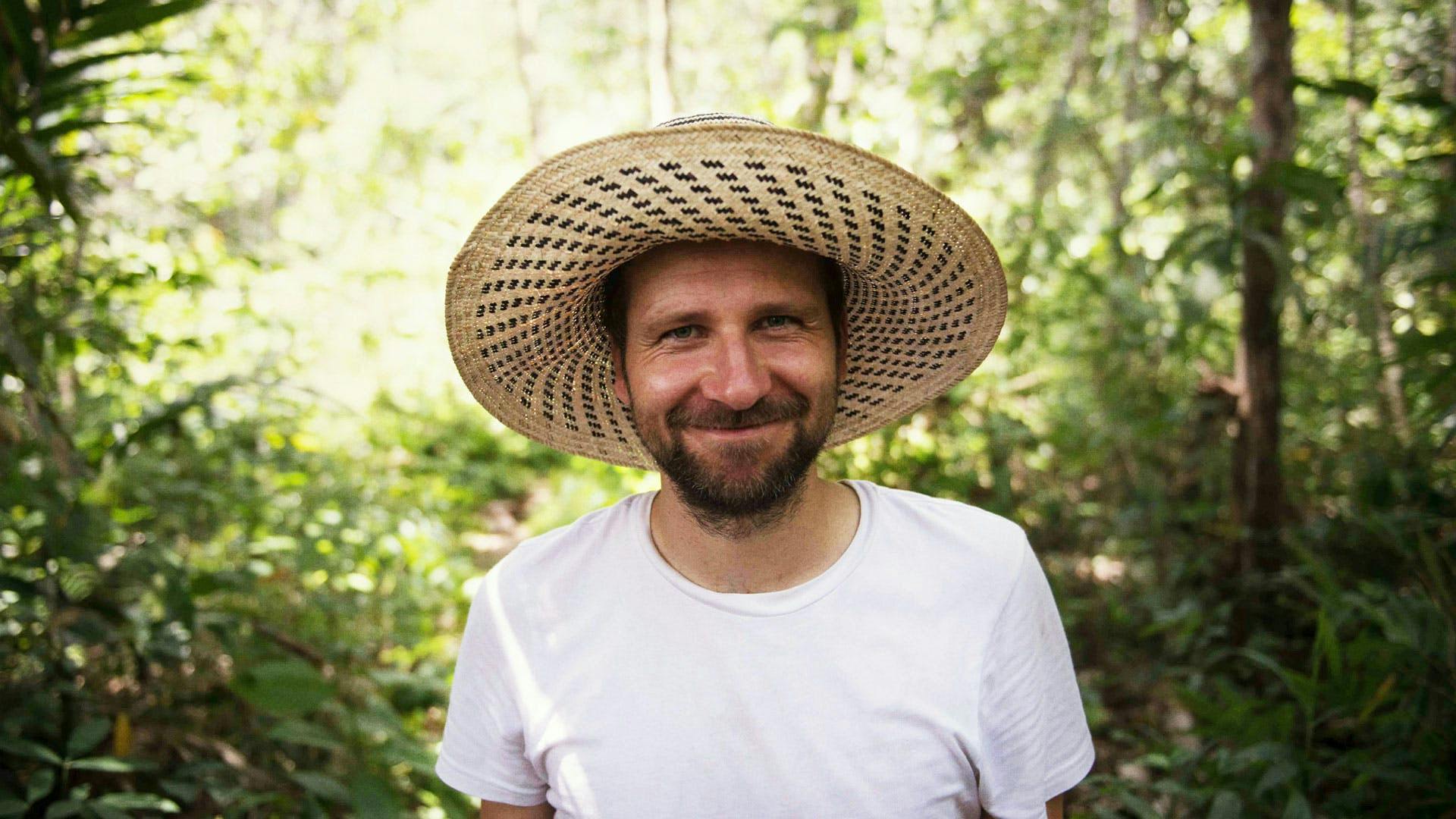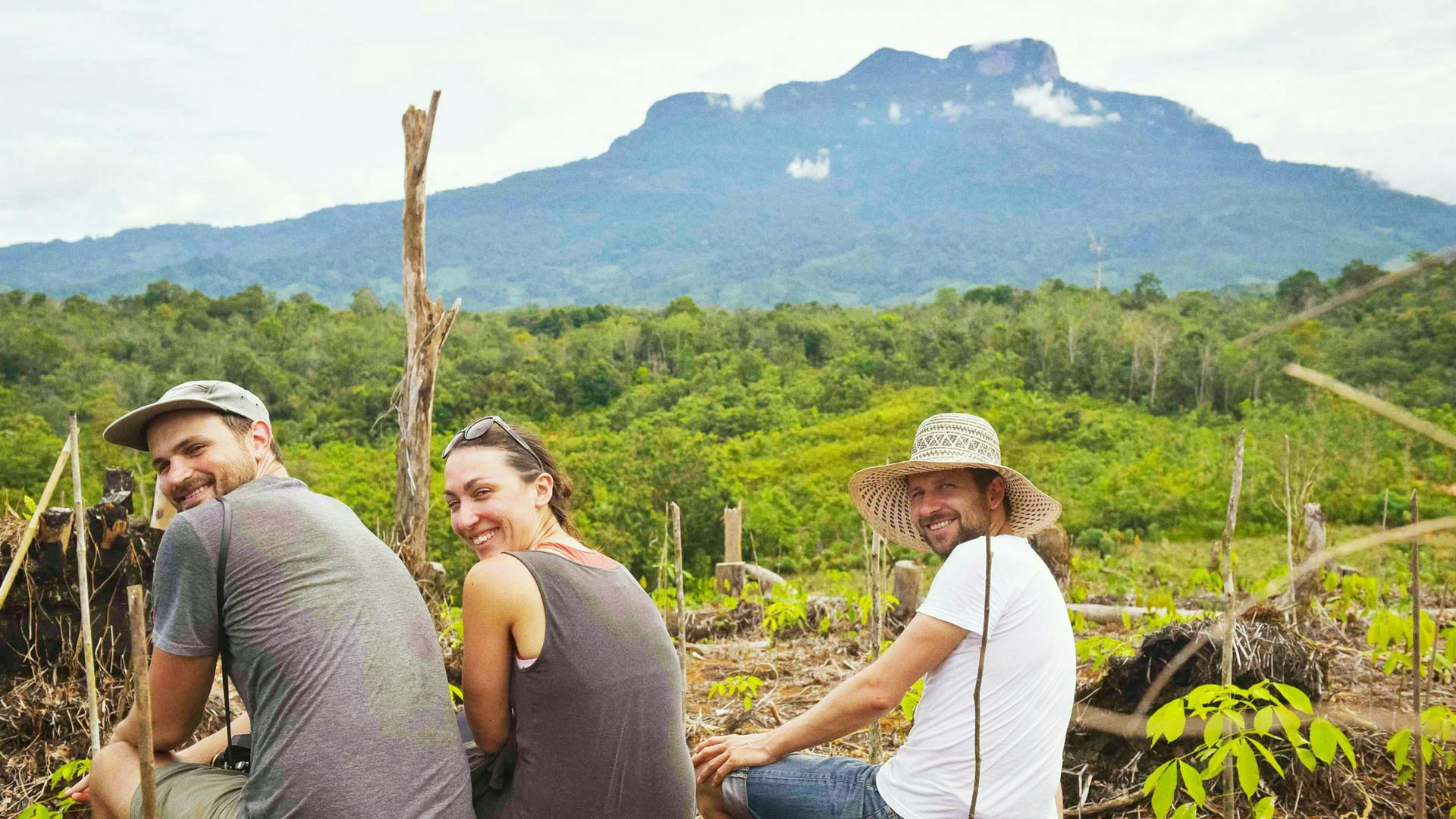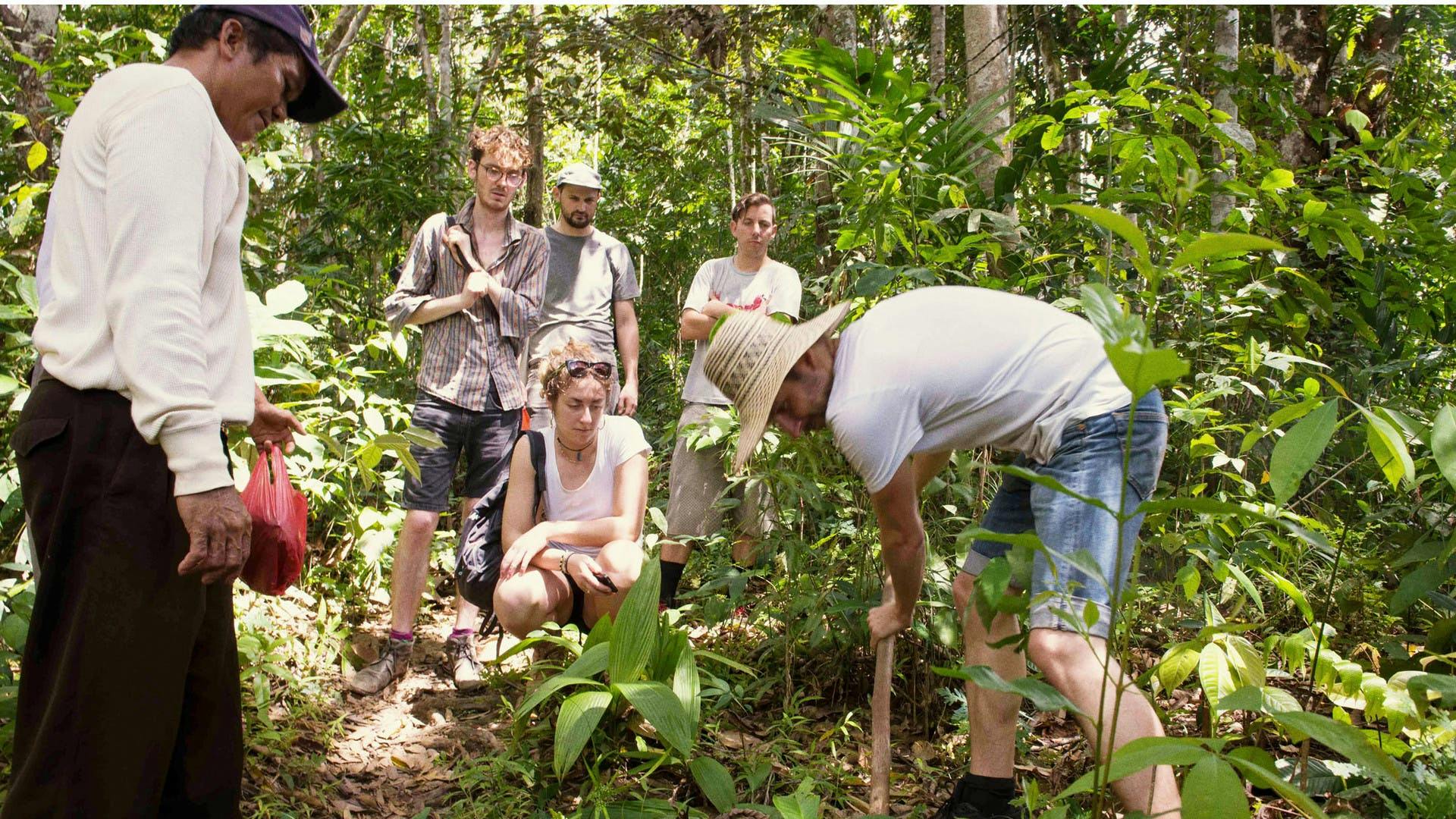Move over, Google: Meet the founder aiming to plant over a billion trees
n light of Earth Day, a worldwide event held each year on April 22 that shows support for the protection of the environment, we wanted to find out more about sustainability when it comes to businesses. In an interview, Christian Kroll, the founder of Berlin-based startup, Ecosia, a search engine that plants trees, tells us about his company’s business model and more.

With research and interviewing by Miriam Partington
Somewhere in the world two months ago, a special tree was planted. It was then that search engine Ecosia placed its 50 millionth tree into the ground.
Whereas today the Berlin startup plants a new tree every second in nearly two dozen reforestation projects across the globe, five years ago they were planting one tree per minute.
Think of Ecosia as a green version of Google; its seven million monthly active users do something good for the environment with each web search. With the aim of prioritizing impact over profit, Ecosia donates a significant portion of the revenue it generates from search ads to tree planting.
I’d love to see more founders working on things that actually matter and solving problems that actually need to be solved.
A notable achievement for the startup includes being recognized for using business as a vehicle to solve environmental and social problems in 2014. This is when it became Germany’s first certified B Corporation.
Founded a decade ago, Ecosia now has its sights set on planting one billion trees by 2020. “This kind of scale would help protect our planet and solve climate change,” says the founder of Ecosia, Christian Kroll.
Christian’s interest in doing social good came out of his post-university travels around the world to countries like Nepal. That’s where the idea of a green search engine first came to him and he became intrigued by the benefits of trees.
He let us in on what sustainability means to him, Ecosia’s business model as well as how companies of all shapes and sizes, including social startups, can do better.

Ethiopia. Photo: Ecosia
How different is Ecosia from Google?
Ecosia is comparatively much smaller than Google, but they can never be as green as we are because they’re a profit-maximizing company. Meanwhile, we’re using our profits to plant trees.
It's good that small, more ethical competitors like us are showing big companies what they could do better. We’re making a big impact in that we’re challenging companies like Google to be accountable and move toward sustainability.
Google has a very ambitious agenda when it comes to renewable energy. Microsoft has also stepped up their game. The tech giants can no longer afford to not be 100 percent renewable. A few years ago, this wasn’t really the case.
Another key way in which we differ from Google concerns the privacy of users. Since privacy is very important to us, we decided we didn't want to have the capacity to lead people toward certain opinions.
We anonymize all search queries after four days and that means we can't build up a user’s personal search history. We literally don't know who you are when you are searching with us and you get the same results as everybody else.
With Google, it’s totally different. You get results that fit exactly with your past searches, especially when it comes to topics like politics. You create your own filter bubbles and you see what you're used to seeing – which is potentially dangerous.

Christian Kroll. Photo: Ecosia
While many impact startups struggle to develop sustainable, scalable business models, Ecosia’s business model has actually changed over the years. Can you explain more?
Like any other startup, emerging impact startups looking to take off also need good business models. Though they had good ideas, I’ve seen companies whose business models couldn’t scale or they didn’t have enough money in the beginning. You need to be realistic about what you can actually achieve.
For the first three or four years, we were just a handful of people not earning real salaries. That’s because we were giving away 80 percent of our revenue. The rest went into all the other necessary things, like purchasing servers, but we couldn't make any investments.
Fly less often, eat less meat and stop buying things you don't need.
When we reached the planting of one million trees in 2015, we decided that we wanted to change that model. We switched to a model where we now give away basically all our profits, but not a fixture of our revenue. This gives us the flexibility to make investments.
By giving our profits away, we turned the traditional business model on its head. This enabled us to build up a different kind of company.
In the last two months, we’ve given away 50 or 60 percent of our revenue, but we're happy if the share is higher. In order to achieve our mission of planting trees, it’s ultimately necessary to make investments, such as hiring programmers.
You’ve spoken openly about businesses taking sustainability more seriously. What can companies do to be more sustainable?
If you're an online shop, for instance, you could add some kind of sustainability rating to your products to help your customers make good decisions. You could also use renewable energy or build your own solar plants, which is what we did.
I think startups have the innovation power to rethink some of these things.
But there are basic things we can all do individually which also apply to startups: fly less often, eat less meat and stop buying things you don't need.
Beyond that, it depends on the company’s business model and how it is set up. We try to lead by example through our company culture.
We have a vegetarian breakfast together every Wednesday because it’s important for us to have a low carbon footprint. And most of our things are locally bought.

Christian (far right) and his team in Borneo. Photo: Ecosia
In light of growing consciousness for the environment, how can people really be sure whether companies are being authentic in terms of their sustainability goals?
Personally, I’d love to see more founders working on things that actually matter and solving problems that actually need to be solved. There are a number of social businesses which are not going as far as I think they should.
When I consider whether to partner with a company, I always myself ask these questions: Who are the people that own the startup? Who are the investors, and do they really care about sustainability?
Google can never be as green as we are... we're using our profits to plant trees.
I've seen startups where the employees really care about the environment but the owners didn't. By looking at its ownership structure, you might be able to see whether a business truly believe in sustainability, or they’re just using it as a marketing trick.
Last year, we turned Ecosia into one of the first purpose companies in the world and made it impossible to sell the company. It's still a for-profit business, but no profits can be taken out of it. Also, shares can only be held by people actually working at Ecosia.
If you have a company which is structured in a similar way, why would it do something that's destructive to the planet?
What are the Berlin-based impact startups on your radar?
Soulbottles has the same ownership structure as Ecosia. They are a self-owned, non-profit company that makes plastic-free drinking bottles.
Another startup worth mentioning is Einhorn, which produces vegan condoms. They are also transforming to become a purpose company.
Main photo by Ecosia

